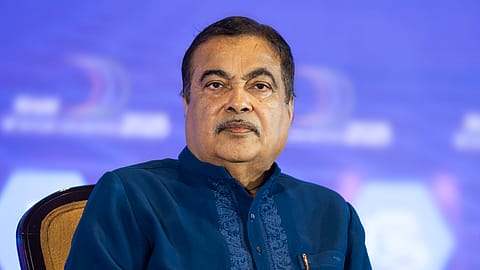India working on a roadmap to make domestic auto industry a global leader in 5 years: Nitin Gadkari
Companies such as Bajaj, TVS, and Hero are exporting nearly 50% of their production, which highlights the robustness of Indian manufacturing

Union Minister for Road Transport and Highways, Nitin Gadkari, has said that India is working with a clear roadmap to make its automobile industry the largest in the world within the next five years.
Speaking at the Inaugurating International Value Summit 2025, Gadkari highlighted that the automobile sector has become the “heart of the Indian economy” and has witnessed remarkable growth in the past decade. “When I took charge as a minister and Prime Minister Modi took charge as prime minister, India’s automobile sector was ranked seventh. Today, the size of our industry is ₹22 lakh crore, and our ranking has improved to third, overtaking Japan,” he said.
Currently, the United States leads the global automobile industry with a size of ₹79 lakh crore, followed by China at ₹47 lakh crore. India, with a rapidly expanding domestic market and strong export base, has positioned itself as a global hub for vehicle manufacturing. “All the reputed brands in the world are now present in India, and their strategy is to make India a centre for maximum exports,” Gadkari added.
The minister pointed out that India’s two-wheeler segment is already highly competitive globally. “Companies like Bajaj, TVS, Hero and Honda are exporting nearly 50% of their production. This shows the strength of Indian manufacturing,” he noted.
However, Gadkari also highlighted that the only problem is that where we need cooperation and guidance from the international sector is the transport of hydrogen, and the hydrogen filling station is a dark area. Today, regarding alternative fuels, electricity, and battery chemistry, as far as semiconductors are concerned, there was is a significant shortage.
He emphasised that the government’s focus on innovation, clean energy and alternative fuels is driving the transformation of the sector. “We are promoting electric cars, scooters and buses, along with hydrogen and biofuels. Battery technology is advancing fast, with lithium-ion costs falling sharply and new chemistries like sodium-ion, aluminium-ion and zinc-ion being developed in India,” Gadkari said.
According to him, this shift towards clean mobility is not only reducing dependence on imported fuel but also creating new opportunities for investment and jobs. “Our policy is import-substitute, cost-effective, pollution-free and indigenous. Because of this, I am 100% confident that India will become number one in the world as far as the automobile industry is concerned,” he stated.
Recommended Stories
Gadkari also highlighted that the sector has already created four crore jobs and is one of the highest contributors to Goods and Services Tax (GST) revenue. “The way in which our oil industry is going to develop is going to create more jobs for the country. Up till now, this industry has created four crore jobs,” Gadkari said.